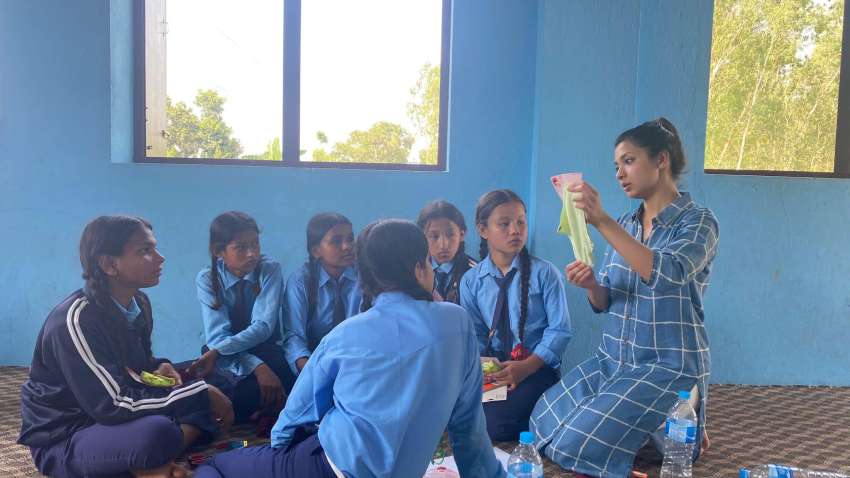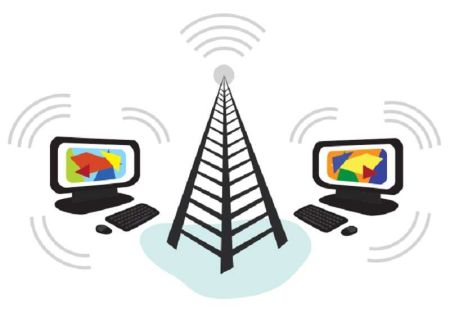BY Suchana Mishra
It may come as a surprise to many that in Nepal, shopkeepers still sell sanitary pads by concealing them within a black plastic bag or discreetly wrapping them in old newspapers. This practice, familiar to every girl and woman in the country, serves as a poignant reminder of the stigma surrounding menstruation.
In a predominantly Hindu society, menstruation is linked with notions of impurity, resulting in stringent restrictions and exclusion for over 89% of menstruating females. The consequences of this cultural mindset are far-reaching; it includes prohibitions on entering kitchens and places of worship, as well as harsh exiles to cowsheds (chhaupadi), in some parts of Nepal, based on fears of contaminating living spaces. Although chhaupadi was declared a criminal offence in 2017, the entrenched belief in society that menstruating women are impure still persists. This belief is reflected in various restrictive customs. Women are labelled 'nachuney', which translates into untouchable, during their periods.
Due to deeply rooted cultural taboos, girls and women face ostracism for a natural biological function. Getting sanitary products remains a challenge, especially in rural areas where 83% of the population still resorts to using cotton rags, and only 15% have access to tampons or appropriate sanitary napkins. The stigma surrounding these issues makes open discussion difficult, disrupting normal lives of women and causing students to miss school.
Amidst this challenging setting, Shubhangi Rana and Jesselina Rana launched a social venture in 2018 to break this taboos. The venture, Pad2Go, was the first in the country to deploy sanitary napkin vending machines. Pad2Go has evolved over time and now addresses menstrual health comprehensively.
"Pad2Go aims to be a transformative force in menstrual health, focusing on access to sanitary products, facilities, and normalising conversations about menstruation," said Pad2Go co-founder Jesselina Rana. "Our objective is to foster an inclusive environment where women and girls aren't hindered from accessing education and public facilities due to their menstrual cycle."
Their vision extends beyond mere accessibility; it aspires to reshape societal perceptions and dismantle barriers associated with menstruation in Nepal. The two young women started their journey when they became aware of the difficulties faced by menstruating individuals in the society where young girls endure discrimination and shame. Inspired by their own stories and a steadfast desire to instigate change, they started Pad2Go with the aim of eliminating the stigma linked to menstruation for future generations.
The fundamental principle behind Pad2Go revolves around a social enterprise model designed to revolutionise menstrual health. Identifying the absence of a market for sanitary napkin vending machines served as a catalyst for their innovation. Through collaboration and innovative design thinking, they embarked on a mission to bridge this gap, placing before profit and embedding social impact as a foundational element of their business model.
Getting sanitary products remains a challenge, especially in rural areas where 83% of the population still resorts to using cotton rags, and only 15% have access to tampons or appropriate sanitary napkins.
Pad2Go's development and viability were largely dependent on strategic decisions. Embracing design thinking, forging partnerships with like-minded groups, and assembling a team that valued education and collaboration were paramount. Co-leadership, accommodating work schedules, candid communication, and fostering both individual and group strengths were key components of their leadership approach.
Identifying their target market involved a combination of surveys, door-to-door marketing, word of mouth, and active participation in events. Being first movers in their sector granted them a strategic advantage, while the brand value of their product, collaborative approach and social impact orientation set them apart from competitors.
However, the journey was not without its challenges. Breaking into the business world as young women presented initial obstacles for Pad2Go. However, they navigated these challenges by embracing a trial-and-error approach and continuous learning.
Acquiring and retaining customers involved proactive approaches like engaging feedback mechanisms through surveys and active website engagement. Customer feedback significantly influenced product enhancement. While Pad2Go anticipates obstacles in scaling the business, the company aspires to achieve comprehensive growth, fulfil internal demands, bolster financial stability, and foster innovation and research.
Success measures include pre- and post-surveys at schools where Pad2Go's vending machines are deployed. Their commitment to social impact is demonstrated by their involvement in legal research, workshops, and advocacy activities. Pad2Go's purpose is deeply rooted in sustainability.
Pad2Go is taking stock of its journey, evaluating its advantages and disadvantages, and planning its next steps to ensure long-term impact as it approaches its five-year milestone with an initial investment of Rs 600,000. Their presence in Nepal has been solidified with the placement of over 350 vending machines across the country's in all seven provinces. All this has been achieved with the efforts of a team consisting of two co-founders, two paid interns, and volunteers. The experience of Pad2Go embodies an endeavour driven by compassion, ingenuity, and a determination to spark societal transformation, gradually revolutionising menstrual health in Nepal.
Addressing period poverty not only aligns with a powerful social cause but also presents a significant business opportunity. Pad2Go's initiative to eradicate period poverty offers a chance for businesses to engage in Corporate Social Responsibility (CSR) initiatives that resonate deeply with communities. Partnering with Pad2Go could enable companies to leverage their resources, distribution networks, and expertise to make a tangible difference in the society.
This collaboration not only fulfils social obligations but also enhances brand reputation, fosters customer loyalty, and opens new avenues for market expansion. Moreover, advocating for policy changes to support this cause creates an environment conducive to sustained impact while aligning with broader societal goals. Ultimately, by joining forces with Pad2Go and policymakers, businesses can contribute to positive societal change while also potentially boosting their own long-term success and growth.
"However, it was not possible to work in a completely non-profit way. It had to be financially independent," Rana said. "That's why we took the path of a social enterprise - earning money while doing work that is effective in society."






















